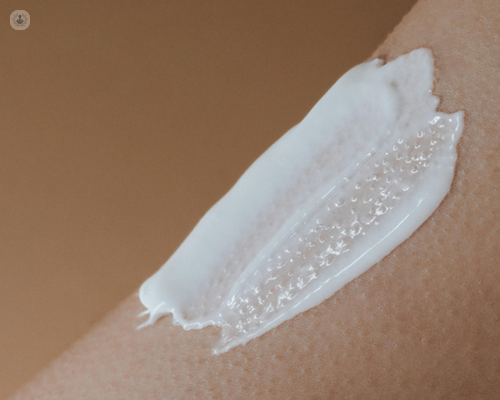Common skin conditions: When should you see your GP?
Written in association with:Many people have skin conditions at a point in their lives. These can range from minor issues like dryness to more serious problems like skin diseases, infections or skin cancer.

What are common skin conditions?
Common skin conditions include acne, eczema, psoriasis, dermatitis, warts and fungal infections. While many skin conditions can be managed with over-the-counter treatments, others may require medical attention.
When should you see your GP about a skin condition?
If you have a persistent or worsening skin condition that doesn’t respond to home treatments, it’s a good idea to see your GP. Here are some signs you should seek medical advice:
- Severe or persistent rashes: If a rash doesn’t go away after a few days or gets worse, it’s worth consulting a GP. A rash that spreads quickly or is accompanied by other symptoms like fever may indicate an infection or allergic reaction.
- Unexplained skin changes: New or changing moles, growths, or discolouration can sometimes be early signs of skin cancer. If you notice a mole that changes in size, shape, or colour, or if it starts to bleed or itch, you should see a doctor promptly.
- Chronic itching or irritation: Persistent itching can be caused by a variety of underlying conditions, including eczema, psoriasis or allergies. If itching lasts for more than a couple of weeks or is affecting your quality of life, it’s time to see a GP.
- Skin infections: Infections like impetigo, cellulitis, or fungal infections can cause redness, swelling, pain, and sometimes pus. These infections may require prescription medication to heal properly.
- Blisters or sores that don’t heal: If you have blisters or open sores that aren’t healing or are getting worse, it could be a sign of an infection or an underlying condition such as diabetes or a skin cancer.
What treatments can a GP offer?
A GP can provide a range of treatments depending on the skin condition. For minor issues, they may recommend topical creams or ointments, antibiotics, or lifestyle changes. For more complex conditions like psoriasis or severe eczema, they may prescribe stronger medications or refer you to a dermatologist for specialised care.
Why is early intervention important?
In some cases, early diagnosis and treatment can prevent a skin condition from worsening or spreading. For conditions like skin cancer, early detection significantly improves the chances of successful treatment. Even for non-life-threatening conditions, getting help early can reduce discomfort and prevent long-term skin damage.
What happens if your GP refers you to a specialist?
If your GP thinks your skin condition requires more specialised care, they may refer you to a dermatologist. Dermatologists are experts in diagnosing and treating a wide range of skin issues. They can offer advanced treatments, such as laser therapy, biologics, or surgery if necessary.
What should you bring to your GP appointment?
When seeing your GP for a skin condition, it’s helpful to bring details about any treatments you’ve already tried, as well as information about your medical history and any allergies. This will help your GP make an accurate diagnosis and provide the most effective treatment.


